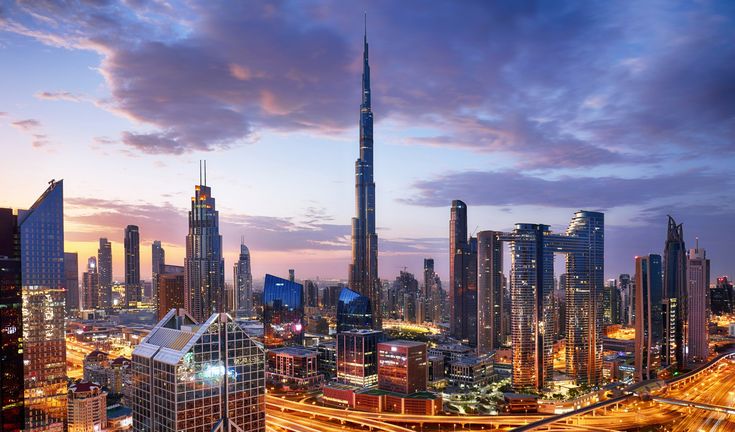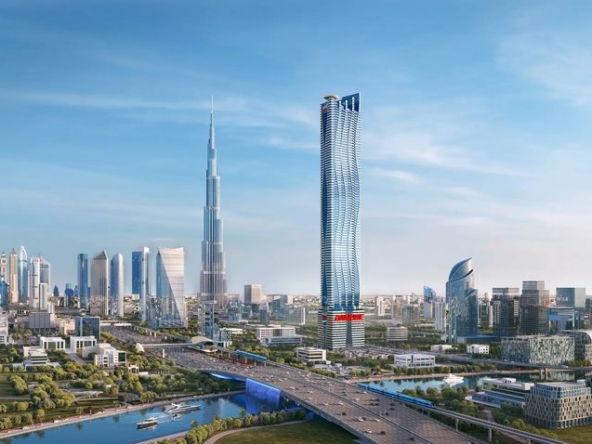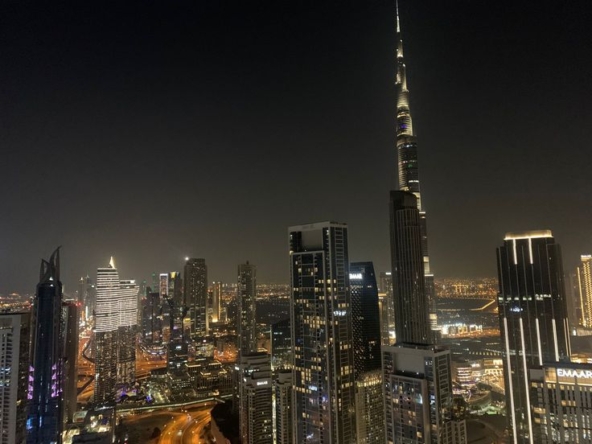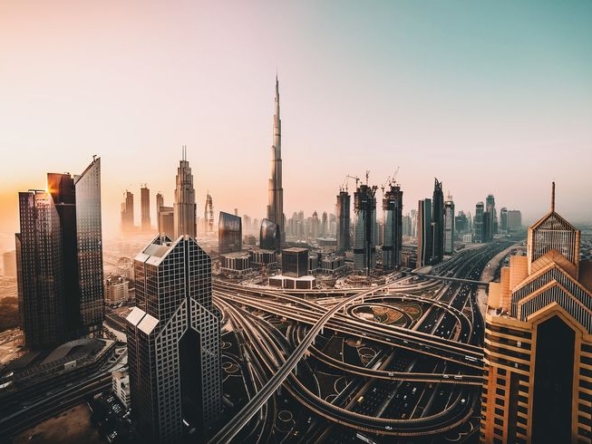5 Things New Buyers Look for in the Dubai’s real estate market
Dubai’s real estate market is one of the most dynamic and attractive in the world, offering a combination of modernity, diversity, and exceptional investment opportunities. Whether you’re an investor seeking high rental yields or a new buyer looking for your dream home, Dubai offers a wide range of options to suit all goals and budgets.
With the growing interest in purchasing properties in Dubai, new buyers often have many questions: What are the best areas? Is investing in Dubai profitable? What additional costs should I consider? In this article, we will explore 5 key things new buyers look for in Dubai’s real estate market, with detailed and comprehensive information to help you make the right decision.
1. The Perfect Location: Where Should You Buy Property in Dubai?
Location plays a pivotal role in choosing the right property, whether you’re buying for personal residence or investment. Dubai is a diverse city offering options to suit various needs. From luxury beachfront neighborhoods to emerging affordable areas, you’ll always find something that fits your requirements in this thriving city, including innovative artificial islands and modern infrastructure.
Top Areas Preferred by New Buyers:
| Area | Key Advantages | Most Popular Property Types |
|---|---|---|
| Downtown Dubai | The heart of the city, home to Burj Khalifa and Dubai Mall, offering an upscale urban lifestyle. | Luxury apartments |
| Palm Jumeirah | A luxurious man-made island offering stunning sea views, perfect for families and premium investors. | Villas and high-end apartments |
| Dubai Marina | A modern area with a mix of urban life and waterfront views, ideal for young professionals. | Luxury and mid-range apartments |
| Arabian Ranches | A quiet, family-friendly area offering villas at reasonable prices with vast green spaces. | Family villas |
| Business Bay | A vibrant business hub near Downtown, blending commercial and residential properties. | Apartments and commercial offices |
| Dubai South | An emerging area near Al Maktoum Airport, offering highly affordable properties for new buyers. | Affordable apartments and smaller villas |
Why Is Location Important?
- Proximity to Work and Schools: Buyers looking for residences often prioritize locations close to their workplaces or their children’s schools.
- Ease of Access: Properties near public transportation like the metro or main roads such as Sheikh Zayed Road are highly desirable.
- Surrounding Amenities: The presence of malls, hospitals, and entertainment facilities enhances the quality of life.
- Investment Returns: Areas with high rental demand are ideal for investors seeking strong returns.
Tips for New Buyers to Choose the Right Location:
- Visit the area in person to get a feel for the surroundings and available services.
- Check the future development plans for the area, as new projects can significantly impact property value.
- Consult a real estate advisor for tailored recommendations that align with your needs.
- In areas with artificial islands or advanced infrastructure, evaluate how these features enhance the property’s long-term value.
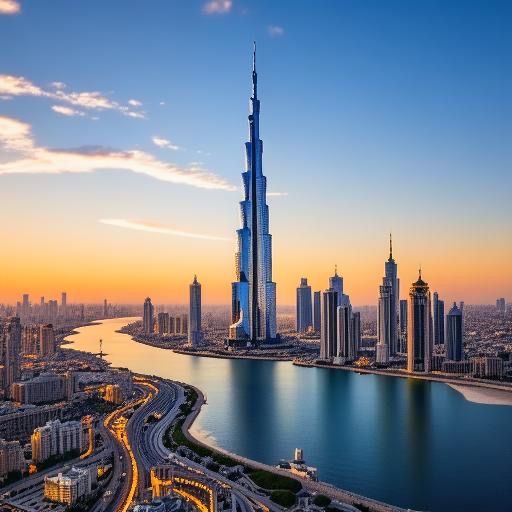
2. Price and Budget: How Much Does It Cost to Buy Property in Dubai?
Budget is one of the most critical factors influencing property purchase decisions. Dubai offers options that cater to all budgets, from small affordable apartments to luxurious villas that cater to high-end buyers.
Average Property Prices in Dubai (2025):
| Property Type | Area | Average Price (AED) |
|---|---|---|
| 1-Bedroom Apartment | Dubai Marina | 1,200,000 – 1,500,000 |
| 2-Bedroom Apartment | Downtown Dubai | 2,000,000 – 2,500,000 |
| 3-Bedroom Villa | Arabian Ranches | 3,000,000 – 4,500,000 |
| Luxury Villa | Palm Jumeirah | 15,000,000 – 25,000,000 |
| Affordable Apartment | Dubai South | 500,000 – 800,000 |
Additional Costs to Consider:
- Property Registration Fees: 4% of the property value.
- Real Estate Agent Fees: Approximately 2% of the property value.
- Annual Maintenance Fees: Varies by project (15-30 AED per square foot).
- Ownership Transfer Fees: Around 2,000 AED.
Tips for Managing Your Budget:
- Set a clear budget before you begin your property search.
- Look for flexible payment plans offered by developers.
- Factor in additional costs like maintenance and registration fees when calculating your budget.
3. Return on Investment (ROI): Is Real Estate in Dubai Profitable?
One of the main reasons new buyers are drawn to Dubai is the high ROI that the city offers. Thanks to the strong demand for rentals, Dubai is one of the top cities globally for rental yields.
Top Areas for High ROI:
| Area | Expected Rental Yield | Property Type |
|---|---|---|
| Dubai Marina | 6-7% | Residential apartments |
| Business Bay | 5-6% | Commercial and residential properties |
| Dubai South | 7-9% | Affordable villas and apartments |
| Downtown Dubai | 5-6% | Luxury apartments |
| Arabian Ranches | 7-8% | Family villas |
Why Is Real Estate Investment in Dubai Profitable?
- Tax-Free Environment: No income or rental tax.
- High Rental Demand: Due to the growing population and influx of expatriates.
- Continuous Development: New projects add value to the real estate market.
4. Quality of Construction and Design: Does the Property Meet Your Expectations?
Dubai is known for its high-quality real estate projects with modern designs and advanced infrastructure. New buyers are keen to ensure that the property they purchase is built to high standards in terms of construction and finishes, with some projects featuring artificial islands and innovative engineering.
How to Assess Property Quality?
- Visit the property in person and inspect the finishes.
- Read reviews from previous buyers about the same developer.
- Review the developer’s previous projects to gauge their quality.
- Consult an independent property inspection expert.
Top Real Estate Developers in Dubai:
- Emaar Properties: Known for iconic projects like Downtown Dubai and Dubai Marina.
- Damac Properties: Offers luxury projects like Damac Hills.
- Nakheel Properties: The developer behind Palm Jumeirah and other landmark projects.
5. Additional Costs and Hidden Expenses: What Should You Know?
Key Additional Costs When Buying Property:
| Expense | Details | Percentage or Cost |
|---|---|---|
| Property Registration Fees | Paid to the Dubai Land Department (DLD). | 4% of the property value |
| Agent Commission | A fee paid to the real estate agent. | Approximately 2% of the property value |
| Annual Maintenance Fees | Used to maintain buildings and shared facilities. | Between 15-30 AED per square foot |
| Ownership Transfer Fees | Paid when registering the property under your name. | Around 2,000 AED |
| Mortgage Fees | If using a mortgage, you’ll pay fees to the bank. | Varies (1-2%) |
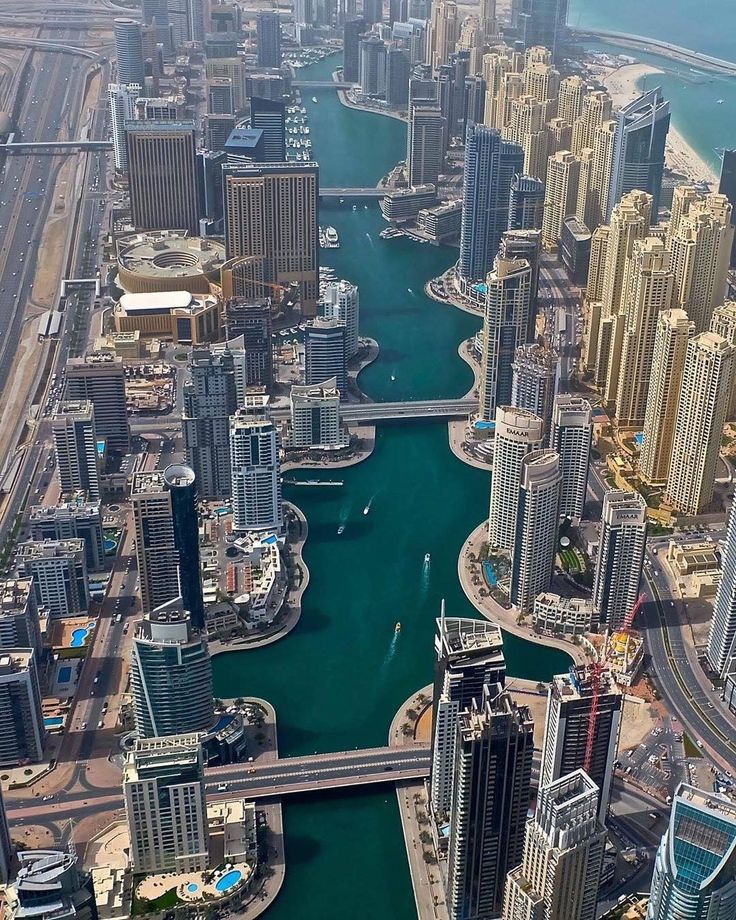
Frequently Asked Questions About Dubai’s Real Estate Market
1. Which Areas in Dubai Allow Freehold Ownership for Foreigners?
Foreigners can purchase properties in designated freehold areas, which include:
- Dubai Marina
- Palm Jumeirah
- Downtown Dubai
- Business Bay
- Arabian Ranches
- Dubai South
These areas offer a variety of options, from luxury apartments to villas, allowing full property ownership without restrictions.
2. Can I Get a Residence Visa When Buying Property in Dubai?
Yes, buyers can obtain a residence visa when purchasing property in Dubai, subject to the following conditions:
- The property must be worth AED 750,000 or more.
- The property must be completed (not under construction).
- The visa is granted for two or five years, depending on the property value and visa type.
This visa is one of the major benefits attracting buyers to invest in Dubai’s real estate market.
3. What Are the Best Investment Options in Dubai’s Real Estate Market?
The best options depend on your investment goals:
- For rental income: Apartments in Dubai Marina, Business Bay, and Downtown Dubai.
- For long-term growth: Emerging areas like Dubai South and Arabian Ranches.
- For luxury properties: Villas and apartments in Palm Jumeirah and Downtown Dubai.
4. What Are the Steps to Buying a Property in Dubai?
Buying property in Dubai is a simple and well-regulated process, including these steps:
- Choose the property – Research and review the details.
- Negotiate & sign a Memorandum of Understanding (MOU) – Agreement between buyer and seller.
- Pay the deposit – Usually 10% of the property value.
- Obtain approval – If using a mortgage, get bank approval.
- Register the property – With the Dubai Land Department.
- Transfer ownership – Once payment is made, ownership is officially transferred.
5. Are There Property Taxes in Dubai?
No, Dubai does not impose property purchase taxes or rental income taxes, making it one of the most attractive real estate markets for global investors.
6. What Additional Costs Should I Consider When Buying Property in Dubai?
In addition to the property price, consider these extra costs:
- Property registration fee: 4% of the property value (Dubai Land Department).
- Agent commission: Around 2% of the property value.
- Annual service charges: Based on property type (15-30 AED per sq. ft.).
- Ownership transfer fee: Around AED 2,000.
- Mortgage fees: If using financing (1-2% of the loan value).
7. Can I Buy Off-Plan Property in Dubai?
Yes, buyers can purchase off-plan properties from developers in Dubai, offering benefits like:
- Lower prices compared to ready properties.
- Flexible payment plans, often extending beyond completion.
Tips for buying off-plan properties:
- Choose a reliable developer (Emaar, DAMAC, Nakheel, etc.).
- Check the completion timeline and developer’s track record.
- Read the contract carefully for penalty clauses on delays.
8. Can I Rent Out My Property After Purchase?
Yes, you can rent out your owned property in Dubai, whether you are a resident or a non-resident. Rental yields in Dubai are high, making it an attractive investment.
- Average rental yield: 5-9%, depending on the area and property type.
- Additional rental costs: If hiring a property management company.
9. What are the advantages of freehold ownership compared to renting in Dubai?
| Feature | Freehold Ownership | Renting |
|---|---|---|
| Property Control | Full ownership and control over the property. | Limited control, subject to landlord’s rules. |
| Long-Term Investment | Appreciates in value over time, offering potential capital gains. | No return on investment; money spent is not recoverable. |
| Modification Rights | Owners can modify, renovate, and customize the property. | Tenants need landlord approval for modifications. |
| Stability | No risk of eviction as long as legal ownership is maintained. | Subject to rental contract renewals and possible price increases. |
| Residency Benefits | Eligible for long-term residency visas depending on property value. | No residency benefits tied to renting. |
| Financial Commitment | Requires a significant upfront investment and mortgage payments (if applicable). | Lower initial cost but requires ongoing rent payments. |
| Flexibility | Less flexibility in relocating due to ownership responsibilities. | Easier to move to different locations or upgrade/downgrade as needed. |
| Maintenance Costs | Owner is responsible for maintenance and repairs. | Landlord is usually responsible for major repairs. |
| Legal Protection | Ownership is protected by Dubai’s property laws. | Rental agreements are regulated by RERA, but landlords can still choose not to renew leases. |
10. What Are the Most Important Tips for New Buyers in Dubai’s Real Estate Market?
- Conduct thorough research on the market and different areas.
- Consult a real estate expert to guide you toward suitable options.
- Check the reputation of the property developer before purchasing.
- Create a clear financial plan that includes additional costs.
- If buying for investment, choose an area with a high rental yield.
11. Can I Easily Sell a Property in Dubai?
Yes, Dubai’s real estate market is highly liquid, meaning you can sell your property relatively easily if needed. However, it depends on several factors, including:
- Market conditions at the time of sale.
- The location and type of property.
- The property’s condition (new or resale).
12. What Are the Best Times to Buy Property in Dubai?
- End of the Year: When developers offer major discounts and promotions.
- Slow Seasons: When demand is relatively low, you may find better deals.
- During New Project Launches: Developers often provide competitive prices and flexible payment plans.
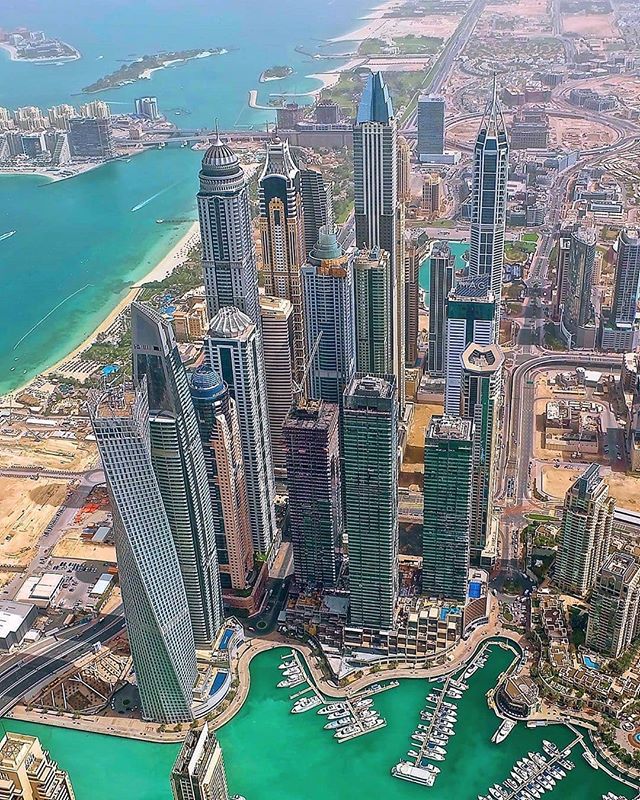
Dubai’s real estate market is an ideal destination for new buyers and investors looking for profitable returns or their dream home. With clear regulations, a secure investment environment, and a wide range of options, you can be confident that your decision to buy property in Dubai will be a step toward a bright future.
Contact us now via: https://wa.me/+971522222773

